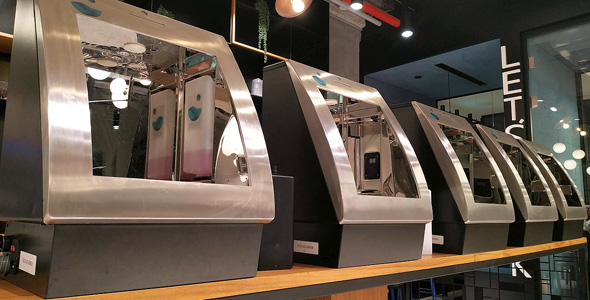This Startup Wants to Fight Coronavirus With Soap and Water
Soapy Care develops smart sinks that incorporate computer vision analytics and IoT technologies to help people wash their hands more efficiently
17:3509.03.20
As fears surrounding the coronavirus, also known as Covid-19, continue to grow and the number of people forced into home-quarantine rises, Israeli startup Soapy Care Ltd. is aiming to halt the spread of the virus by helping people wash their hands more efficiently.
Founded in 2018 and based in Rehovot in central Israel, smart hygiene startup Soapy Care develops smart sinks that incorporate computer vision analytics and Internet of things (IoT) technologies, Max Simonovsky, the company’s co-founder and CEO said in a Monday interview with Calcalist.

Soapy Care's smart sink. Photo: Soapy Careצילום: soapy care
The smart sinks are autonomous and replace traditional sinks, Simonovsky said. Soapy Care’s sinks can be programmed with different settings, including the amount of time the water runs or the precise amount of soap or sanitizer dispensed, in accordance with where the smart sinks are situated, be it at restaurants, hospitals, retirement homes, daycares, or in private homes, Simonovsky said.
While the company suggests using specific types of soaps for better results, their sinks can be used with any standard soap, he said.
The idea for the smart sinks arose a few years ago when Simonovsky’s son, who was two years old at the time, told him he does not think handwashing is important given that some of the sinks at his daycare do not work properly.
Since the coronavirus outbreak, the company has dropped its prices for customers in hard-hit areas, such as China and South Korea, to help halt the spread of the virus, he said. The outbreak has led to a mass increase in the demand for Soapy Care’s smart sinks, Simonovsky added.
Soapy Care’s technology can be found at restaurants, factories, and daycares in countries including Israel, the U.S., Angola, and India, he said. The company has raised more than $1 million to date and employs a team of 22 people.



